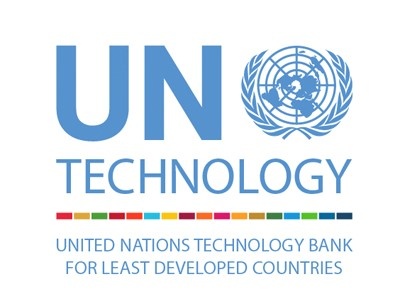The United Nations Technology Bank for Least Developed Countries and FAO Partner to Build Research Capacities In Least Developed Countries with new Online Courses
12/03/2020


Expressions of Interest to Participate in 2020 Online Courses Now Open
Since 2018, The United Nations Technology Bank for Least Developed Countries has been working to strengthen national capabilities and provide expertise to ensure that least developed countries (LDCs) are not left behind in achieving internationally agreed sustainable development goals. The United Nations Technology Bank (UNTB) is taking steps to stimulate the production of high-quality research in LDCs through capacity development and fostering South-South and South-North research collaboration.
The Food and Agriculture Organization of the United Nations (FAO) shares the same interest in its Members Countries, and supports them in managing their own development process, by building initiatives to help strengthen their capacities to achieve their own goals.
Stakeholders in Information use, Scholarly Communication and Information Management working in LDCs have historically suffered from a lack of access to up-to-date scientific literature essential for furthering studies, discovering evidence, sharing findings, teaching, practising, and developing public policy. While the publishing landscape is evolving, subscription-based resources remain the largest source of high-quality scientific information for the research community, presenting budgetary challenges to libraries and research organizations in low income countries.
UNTB and FAO with several organizations support capacity development endeavours in the context of Research4Life, a knowledge platform that provides access to up to 100,000 leading journals and books in the fields of health, agriculture, environment, innovation and law. More than 9,000 institutions in more than 120 low- and middle-income countries with free or low-cost online are benefiting from Research4Life.
UNTB and FAO are excited to partner to support the delivery of online training activities for the 47 least-developed countries to enhance the access to recent scientific knowledge, and thus give them the opportunity to participate fully in the global scientific community.

UNTB and FAO will run two editions of the Massive Open Online Course (MOOC) titled: “Research4Life Online Training Tools to develop capacities in information use, scholarly communication and information management in least developed countries”. The courses will be delivered with the objective to equip researchers in educational, research, and policy institutions in these countries with the knowledge and the skills required to access and use information effectively and efficiently.
The courses are set to be delivered in June and October 2020. FAO is currently collecting expressions of interest from least developed countries through an online application form. Interested participants can express interest via the form until the end of May.
For more information about the course details, please visit the course page.
About The United Nations Technology Bank for Least Developed Countries
The United Nations Technology Bank for Least Developed Countries is a global organization dedicated to enhancing the contribution of science, technology and innovation for sustainable development in the world’s least developed countries.
The UN Technology Bank became operational in 2018 and serves the 47 least developed countries (LDCs) and former least developed countries for up to five years after their graduation from the category. According to the UN, LCDs are low-income countries confronting severe structural impediments to sustainable development. They are highly vulnerable to economic and environmental shocks and have low levels of human assets.
Headquartered in Gebze, Turkey, the UN Technology Bank actively engages with national, regional and international partners to deliver its programme and projects which strengthen science, technology and innovation capacity in least developed countries. The UN Technology Bank supports national and regional technological efforts, reinforces partnerships across sectors and helps nations identify and use appropriate technologies to transform their economies and improve livelihoods.
